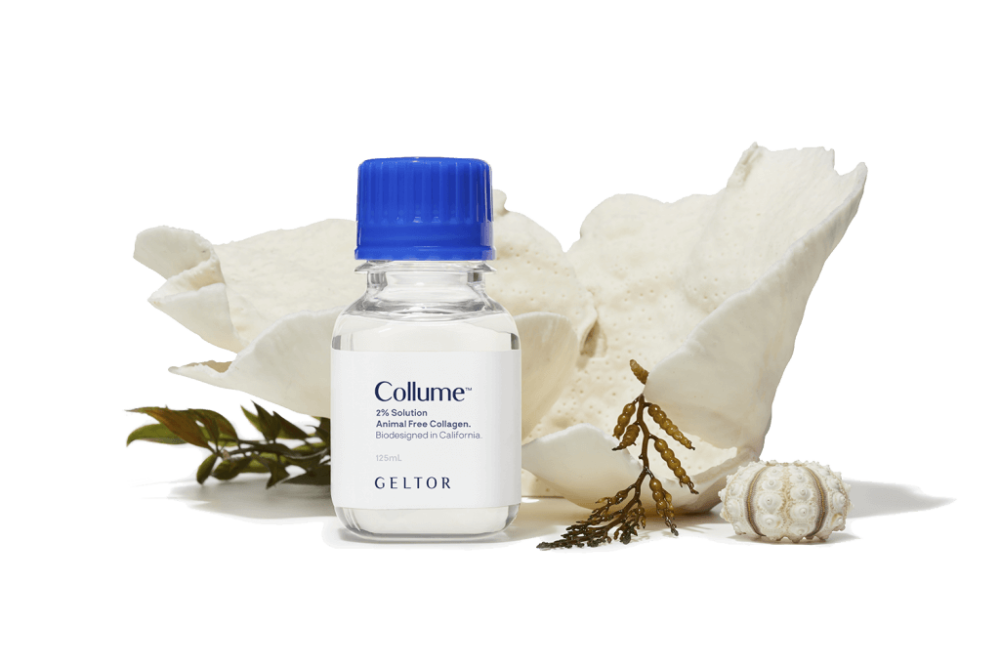The vast majority of the world’s collagen supply comes from pigs. But with African Swine Flu ravaging the pork industry, and a global pandemic folded into the mix early this year, wreaking havoc on meat supply chains, alternative sources are becoming increasingly appealing for companies that rely on the ingredient. So says Geltor co-founder and CEO Alex Lorestani in the wake of announcing a $91.3 million Series B financing.
“At the end of last year, we were excited to see a lot of our customers who we were selling our off-the-shelf products to come back and ask us what else we could make for them through our fermentation process,” Alex Lorestani, Geltor co-founder and CEO, told AFN. “We started talking to investors, it was the middle of ASF. Fast forward a few months in term sheet negotiations and the next public health threat crystalized for a lot of folks how important it is from a business and human perspective to find a way to stabilize our protein supply.”
Geltor raised the funding to help expand its new ingredients-as-a-service platform. The round was led by alt-protein-focused investor CPT Capital, with a significant commitment from Taiwanese family office WTT Investment. The new funds will be used to build out the Geltor team and to assist more customers. Lorestani describes the startup as asset-light, primarily consisting of technological processes instead of extensive manufacturing facilities.
“With CPT, what we think we are doing is ultimately putting them in a position to be the number one alternative protein investor in the world. WTT are big shareholders in Beyond Meat and an early backer there, as well.”
Most collagen on the market today is produced from the bones, skin, and connective tissue of animals through a chemical extraction process that can take several months. Geltor’s process of designing and manufacturing collagen does not involve animals at all.
Established in 2015, the San Leandro-based startup has provided collagen to the personal care and cosmetics industries. Its first product line is an award-winning skincare ingredient, N-Collage. It uses computational biology via proprietary algorithms to identify the ideal protein in nature with the best properties for certain applications. It then designs a microbe that efficiently turns plant-based sugars into that protein through a microbial fermentation process. These collagen products can be bio-designed for strength, firmness, and flexibility that you might not get with “low-grade” animal waste-based products, according to Geltor.
Making bespoke ingredients for customers of course brings new challenges for a company otherwise focused on providing universal offerings off the shelf.
“I think when you look around at the field there are groups who are going to be focused on creating different types of bio-based products and instead of taking a really wide view of the field we want to be the best at one particular thing,” Lorestani explains. “So, we chose to focus on protein ingredients in particular. We think proteins can do a lot but at the same time it allowed us to focus.”
Geltor is continuing to offer its off-the-shelf products and has only recently started getting its feet wet in the fledgling ingredients-as-a-service side of the business.
Next year, it hopes to move into the food and beverage industry with ingestible collagen ingredients. The demand for health-oriented food and beverage products has increased as consumers grow more curious about what different ingredients can offer beyond taste and satisfying their appetites.
Collagen has been an increasingly popular ingredient among consumers. In 2019, the global collagen market demand was estimated at 920.1 tons. It’s estimated to develop at a CAGR of 5.9% from 2020 to 2027 with food and beverage uses driving most of the growth.
“All collagen is not created equal. What we are so excited about is being able to bring a level of consistency and clarity around the source, structure, and nature of the proteins that we brew, which is unparalleled in the industry. We are excited to enable consumers to understand what is in the bottle, which can be challenging today.”
As for challenges, onboarding new scientists during a pandemic and continuing R&D efforts that largely involve building physical things are high on the list. As the company moves forward, identifying the right partners for manufacturing will also be a pivotal step.
“We spent the first few years of the company’s life scaling up, demonstrating that the tech works at the largest fermentation scales for our clients. Now it’s about scaling out.”





